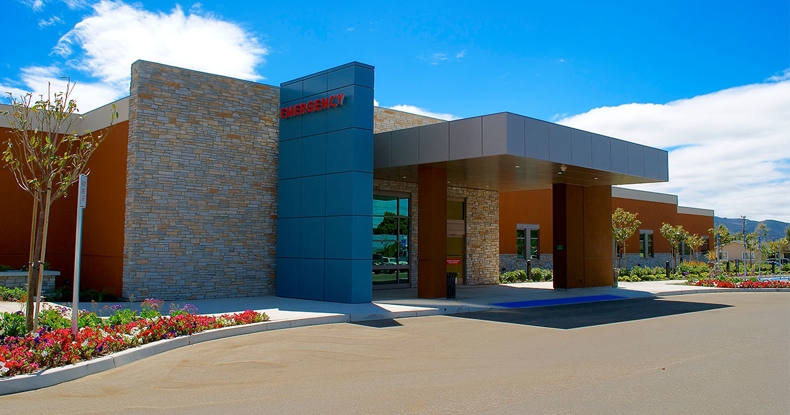The Top 7 Threats to Your Kidney Health
- Category: Health & Wellness
- Posted On:
- Written By: LVMC Staff

Did you know that you have a powerful cleaning system within your body that operates all hours of the day? The beating of your heart propels this amazing system, and it is specifically designed to help clean the entire volume of your blood multiple times per day. The organs responsible for cleaning your blood and keeping it free of toxins—as well as tightly controlling the balance of water, salt, and other chemicals within your body—are your kidneys.
Most people are born with two functioning kidneys. To preserve your optimum health, keeping your kidneys happy and healthy throughout your lifespan is important. This is why knowing how your kidneys work and what threatens their function is helpful. At Lompoc Valley Medical Center, we believe that knowledge is power. Make sure to check out this primer on kidney health, including the top seven threats to your kidney health.
How do the kidneys work?
Your kidneys are a pair of organs that are about the size of a fist. They sit in the back of your abdominal cavity beneath your rib cage. When blood flows to your kidneys through your renal arteries, it is siphoned through a series of small tubes and channels in your kidneys, with varying gradients and cleaning functions. After traveling through the kidney, your freshly-cleaned blood is returned to your bloodstream via the renal vein. Your waste products and excess water are filtered out of the kidneys and into your ureters, the long tubes that connect to your bladder.
Your kidneys are tightly calibrated to hold onto certain chemicals and release others, depending on your given needs. For example, if you have just had a highly salty fast food meal, your kidneys may hold on to a little more water and release a little extra salt than normal. By performing this delicate calculation, your kidneys also regulate your blood pressure because your blood pressure is determined by how much blood volume (or fluid) is in your system.
Your kidneys don’t only filter blood and produce urine. They are also multi-tasking super organs. Your kidneys make hormones that impact the strength of your bones and your production of red blood cells.
What makes your kidneys happy?
Your kidneys are working constantly to maintain a proper balance, or “equilibrium,” within your blood. To keep your kidneys happy, strive for moderation, and avoid any extremes. This means avoiding eating excessively salty or sugary meals and avoiding drinking too much or too little water. Keeping your blood pressure under good control is essential, as well.
The Top 7 Threats to your kidney health
Living outside a recommended health range—whether it’s a blood sugar range or blood pressure range, or otherwise—for too long or chronically can cause damage to your kidneys and jeopardize your health. Read on to learn about the top seven threats to your kidneys.
Threat #1: Inadequate hydration
Have you ever heard of someone going into kidney failure because they’ve gotten extremely sick or dehydrated? In general, your kidneys are resilient, and they can titrate their filtering based on your body's needs at any moment. For example, if you are running a marathon in a desert, your kidneys will quickly get a signal that they need to hold on to more water and produce less urine. However, your kidneys can only dial up their water retention so much. At a certain point, your kidneys will stop filtering efficiently because they aren’t receiving enough perfusion, or blood volume, to continue their work. This severe dehydration can cause waste products to build up within the blood and kidneys, causing damage.
According to the National Kidney Foundation, even mild dehydration can cause kidney damage if it happens frequently enough. To make sure you’re getting enough fluid to keep your kidneys happy, you can monitor the color of your urine. Your urine should be a pale yellow color. If it is dark yellow or a different color, it may mean you need to drink more water (but make sure to check with a healthcare provider first before you make any big changes in your habits).
Threat #2: Too much salt
When you eat a diet that is high in salt, your kidneys are forced to hold on to more water than normal instead of releasing it through your urine. However, holding onto water increases your blood volume, which in turn can increase your blood pressure. When your blood pressure is too high, and it enters your kidneys with too much force, this can cause damage to the very delicate filtering structures of your kidneys. Instead of using salt for flavoring, the National Kidney Foundation recommends using more spices, instead.
Threat #3: Smoking cigarettes
If you smoke cigarettes, you likely already know that the health of your lungs and heart is in jeopardy. However, it’s also important for you to know that smoking compromises the health of your kidneys, too. Smoking can slow the blood flow to your kidneys, which can cause damage. Smoking can also increase your blood pressure or interact with blood pressure medications you’re taking, which can negatively impact your kidneys.
Threat #4: High blood pressure
High blood pressure is one of the top threats to kidney health, coming in second to high blood sugar. When your blood pressure is high, it can cause changes in your blood vessels, making them more narrow. These changes can occur within your kidneys, which means that the blood will not flow as well through your kidneys, and your kidneys will not be able to filter out as many waste products and as much fluid as they need to. This means that the excess fluid returned to your circulatory system after being processed by your kidneys may increase your blood pressure even more, creating a negative loop. Your kidneys are involved in controlling your blood pressure, but as they become more and more damaged by high blood pressure, they will be less able to exert their effects.
Threat #5: High blood sugar
The top threat to your kidneys is high blood sugar. When you have chronically high blood sugar, which occurs in the condition known as diabetes, the excess sugar molecules that your kidneys have to process end up causing damage to the delicate blood vessel structures of the kidneys themselves. Not only can excess blood sugar cause damage to the blood vessels in your kidneys, but it can also damage the nerve cells in your bladder. When the nerves of your bladder become damaged, you may not know when your bladder is full and needs to be emptied. The backflow of urine from your bladder to the ureters and back to the kidneys can cause kidney damage. When your kidneys stop functioning properly, it can lead to a snowballing effect on your overall health.
Threat #6: Certain medications
There is a specific name for a medication or substance that can cause harm to your kidneys. It is called “nephrotoxic.” The kinds of medications that are considered nephrotoxic may surprise you—in fact, some of the most common over-the-counter pain medications can be nephrotoxic if taken improperly. These medicines, known as non-steroidal anti-inflammatory drugs or NSAIDs, can cause kidney damage if you don’t take them with the recommended amount of food or water or take a higher or more frequent dose than recommended. Common types of NSAIDs include aspirin, ibuprofen, and naproxen.
According to the National Kidney Foundation, other “nephrotoxic” medications and substances include some antibiotics, laxatives, contrast dyes used in imaging studies (such as a CT scan), illegal drugs, and alcohol in high amounts.
If a medication is nephrotoxic, that doesn’t mean that you can’t take it. However, it will be very important for you to follow the instructions about how to take medicine safely and to check in with your healthcare provider about taking any new medications or substances, especially if you have underlying kidney disease.
Threat #7: Trauma
This final threat to your kidneys is largely out of your control. However, now that you know more about the kidneys and how they function, it makes sense how trauma could negatively impact your kidneys. If you are involved in a trauma, such as a car crash, that causes internal bleeding, you may have very low blood pressure. This low blood pressure, which is caused by a lower-than-normal amount of blood circulating in your system, can cause kidney damage and even kidney failure. However, trauma teams are experts at addressing your blood pressure to support the function of all of your organs, including your kidneys.
How to learn more about protecting your kidneys
Many people who have early kidney damage are unaware of their condition because they do not have any symptoms. In its early phase, kidney damage doesn’t cause any obvious signs. This is why it’s critical to see a healthcare provider routinely who can screen you for kidney disease and other health conditions. If you’ve been diagnosed with a chronic disease such as diabetes or high blood pressure, which are known kidney health threats, it’s even more critical that a healthcare professional periodically monitors your kidneys.
At Lompoc Health, our family medicine and internal medicine providers are experts in preventive medicine. They can help keep you on track regarding keeping your kidneys healthy. Contact us today to learn more about protecting your kidney health or to book an appointment.






